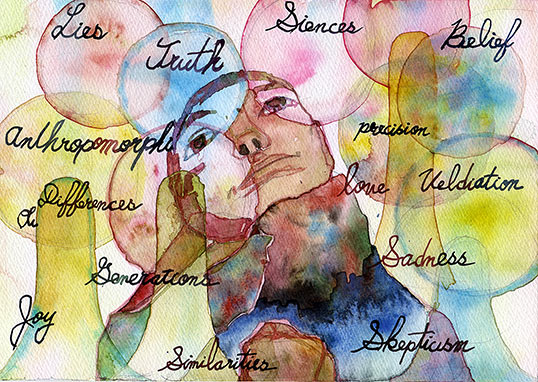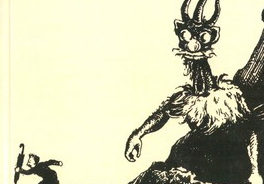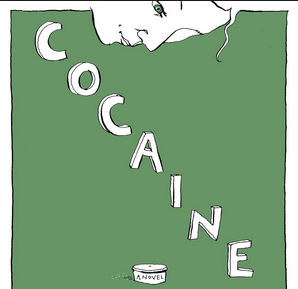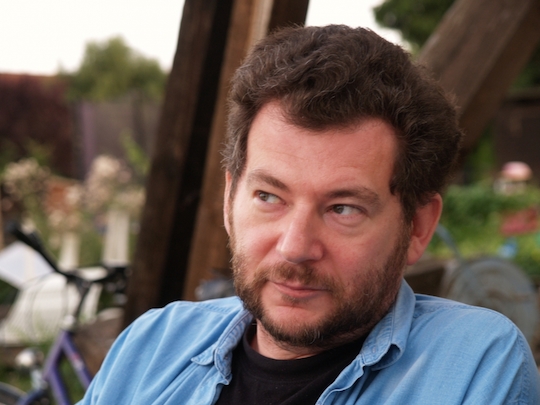Earlier this spring I attended StAnza, one of Scotland’s major international poetry festivals. After an early flight from Stockholm to Edinburgh, I boarded a bus taking me to the east coast of Scotland. The bus made its way through twisty and narrow roads, overlooking green hills on one side, while the other faced long, golden sand dunes and black rocks coated in seaweed. Two hours later, I arrived at the city of St. Andrews, or as the Scots say it, Saunt Aundraes, the home of the festival.
Monthly Archives: May 2014
Dispatch from Scotland’s International Poetry Festival

Editor-at-large Jasmine Heydari tackles Welsh poetry, language and war, and a Haggis breakfast in her dispatch from StAnza
Weekly News Roundup, 9th May 2014: Happy Libraries, Sad Pomegranates

This week's literary highlights from across the world
You can hear the cheers from here! After widespread outcry and a petition with signatures from the likes of Tom Stoppard, Jonathan Lethem, Salman Rushdie, Susan Bernofsky, and Annie Proulx, the New York Public Library has squashed its plans to do away with the book stacks in its 42nd Street edifice. If you’re outside the New York area, chances are you can still partake in the Worldwide Library, which is finally going digital—not without a hitch, however. READ MORE…
Issue Spotlight: “Brief Notes on Science”

"We have seen how it is originally language which works on the construction of concepts, a labor taken over in later ages by science."
Gonçalo M. Tavares’ “Brief Notes on Science,” translated by Rhett McNeil in our newest issue, is a curious venture into the semantics of scientific enterprise. With wit, insight, and exactitude, the allegorical tries on a technical job: defining and sketching out the surprisingly ambiguous nature (and purpose) of science. READ MORE…
Like the quarterly journal (now open for submissions), Asymptote blog is devoted to publishing creative and critical pieces related to world literature, culture, and translation—which means we love to read and publish original pieces and translations by writers like you. So if you have something to say, read on and get in touch!
A sunny winter in Florence.
Early morning—blue and gold, and
the black Florentine air—eeny meeny miney moe—has completely vanished from the city: and is now wrapping up and flowing down the hills that are more orbital than surrounding.
Above the hills—the still-white night sky slowly turns blue. And between the hills, red Tuscan brushwood burns, which will soon become gold…
The conjoined sky.
The mooing hills.
The well-defined valleys.
The cypresses are like folded umbrellas,
and the stone pines—unfolded.
Under the stone pines and cypresses, Italians brushed the drips from their gray hair in the rear-view mirrors of their own and others’ motor scooters and sang sweetly with voices as hoarse as though they had an Italian three-day stubble.
Untranslating Children’s Nonsense Poems

"The Bengali literary mafia would say: 'This is untranslatable.'"
When Indian author Sampurna Chatterji was growing up, she lived between several languages. Her father taught English, while her mother taught Bengali. In Chatterji’s own schooling, the instructional language was English, but she also learned Hindi and Sanskrit.
“All this creates a sort of strange cacophony in the head,” Chatterji said at a professional seminar at this year’s Abu Dhabi International Book Fair, held from April 30 to May 5.
But this “cacophony” also creates wonderful opportunities for linguistic connections. As she developed as a writer, Chatterji decided not to write in Bengali. “The burden of being Bengali was too much for me,” she said. Her teenage rebellion was not to go off and smoke, but to write in English. READ MORE…
Big, big news in translation-land this week: the 2014 winners of Three Percent’s Best Translated Book Award were announced! Asymptote-rs abound: the winner in the fiction category is Seiobo There Below, written by Hungarian author, Asymptote alum, and last year’s winner László Krasznahorkai, translated by Asymptote’s very own (past blog contributor!) Ottilie Mulzet. In the poetry category, Italian poet Elisa Biagini snagged top honors for A Guest in the Wood, team-translated by Diana Thow, Sarah Stickney, and Eugene Ostashevsky: check out Asymptote’s feature here! READ MORE…
In Review: Pitigrilli’s “Cocaine”

A new translation of Pitigrilli's "Cocaine" is as titillating as its title
It should come as no surprise—if titles mean anything at all, that is—that Pitigrilli’s Cocaine was banned shortly after its 1921 publication. The slim Italian novel is not short on the white stuff, and it doesn’t skimp on the excesses we associate with its sniffing: sex, orgies, general underworld shadiness, all glimmering with the luster that illicit substances (if only through their very illicit-ness) can provide.
To readers in 2014, the novel’s purported depravity may appear mellowed, but Cocaine shocks the system all the same. The real blow in reading this nonagenarian novel, rereleased in a new translation by Eric Mosbacher through New Vessel Press, is its stomach-turning linguistic smarts that elevate this by-turns insightful and nonsensical tale to M.C. Escher-esque levels of depth. Cocaine isn’t about the drug, after all: storming through the not-quite surreal, the book reveals the addictive authority of the words we use.


